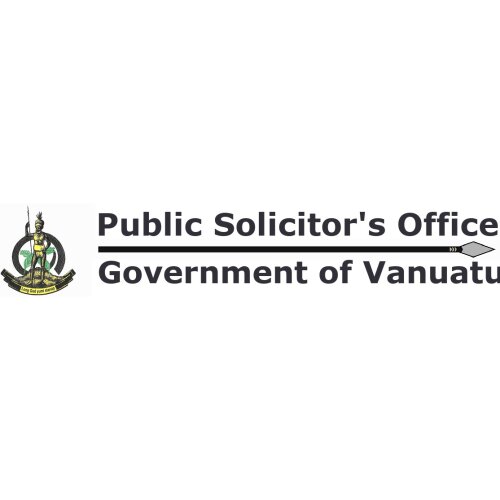Best Retirement Lawyers in Vanuatu
Share your needs with us, get contacted by law firms.
Free. Takes 2 min.
Or refine your search by selecting a city:
List of the best lawyers in Vanuatu
About Retirement Law in Vanuatu
Retirement in Vanuatu is an attractive option for many due to its serene environment, favorable climate, and relatively low cost of living. Vanuatu offers several pathways for retirees, including the Self-Funded (Investor) Resident Visa, which allows retirees to enjoy long-term stay in the country. Understanding the legal framework surrounding retirement is crucial for a smooth transition and to ensure compliance with local laws. The legal framework is designed to accommodate retirees who can support themselves without engaging in employment within Vanuatu.
Why You May Need a Lawyer
There are several scenarios where you might require legal assistance when planning for retirement in Vanuatu:
- Visa and Residency Applications: Navigating the application process for the proper visa can be complex, and legal guidance can ensure that all requirements are met efficiently.
- Property Purchase: Many retirees choose to purchase property in Vanuatu, which requires navigating local property laws and regulations.
- Taxation: Understanding Vanuatu's tax laws and how they apply to foreign retirees can help avoid legal issues.
- Estate Planning: It's essential to plan for the distribution of your assets, and a lawyer can help ensure your wishes are followed according to local laws.
- Healthcare Rights: Legal advice may be needed to understand healthcare entitlements and obligations in Vanuatu.
Local Laws Overview
Vanuatu’s laws provide several frameworks to facilitate retirement, but key aspects include:
- Residency Permits: The primary visa for retirees is the Self-Funded Resident Visa, which requires proof of sufficient income and/or financial resources.
- Property Ownership: Foreigners can own property in Vanuatu, typically through leaseholds, which are common for up to 75 years.
- Taxation: Vanuatu is known for no income tax, capital gains tax, or inheritance tax, which can be beneficial for retirees.
- Banking Regulations: Establishing a local bank account is recommended, and understanding the banking rules is necessary for financial management.
Frequently Asked Questions
What is the eligibility criteria for a retirement visa in Vanuatu?
Applicants must generally be over 55 years old and demonstrate financial self-sufficiency with either a regular income or substantial savings.
Can I work while on a retirement visa in Vanuatu?
No, the retirement visa does not permit employment or business activities in Vanuatu.
Are there healthcare facilities available for retirees?
Yes, Vanuatu has several healthcare facilities, but retirees often opt for private health insurance to cover more comprehensive medical needs.
Is it possible to purchase property in Vanuatu as a retiree?
Yes, retirees can purchase property, typically through leaseholds, and it’s advisable to seek legal advice to navigate these laws.
Do retirees have to pay taxes in Vanuatu?
Vanuatu does not impose income tax, capital gains tax, or inheritance tax, making it tax-friendly for retirees.
How long can I stay in Vanuatu as a retiree?
The Self-Funded Resident Visa allows for long-term residency, subject to renewal conditions being met.
Do I need legal representation to apply for residency?
While not mandatory, having a lawyer can simplify the visa application process and ensure all requirements are met.
What should I do to plan my estate in Vanuatu?
Consulting with a local lawyer is essential to ensure that your estate plan aligns with Vanuatu’s laws and your personal wishes.
How secure is living in Vanuatu for a retiree?
Vanuatu is generally considered safe, but it's advisable to understand local customs and laws to ensure personal security.
Can I bring dependents with me on a retirement visa?
Dependents typically need to have their visas, and legal advice should be sought to understand specific requirements.
Additional Resources
For further assistance and information, consider reaching out to:
- Vanuatu Department of Immigration: Primary resource for visa and residency requirements.
- Real Estate Agencies: Local agencies can offer guidance on property laws and available listings.
- Vanuatu Financial Services Commission (VFSC): Provides insights and regulations on financial matters in Vanuatu.
- Legal Firms: Several law firms in Vanuatu specialize in retirement and expatriate law.
Next Steps
If you're considering retirement in Vanuatu and require legal assistance, it's advisable to:
- Consult a Lawyer: Engage with a local attorney who specializes in retirement and expatriate law to discuss your plans.
- Collect Necessary Documentation: Gather all relevant documents for visa applications, financial proofs, and any other necessary paperwork.
- Plan a Visit: Consider visiting Vanuatu to familiarize yourself with the environment, legal requirements, and retirement communities.
- Engage with Community Resources: Attend forums or expatriate groups to gain firsthand insights and recommendations.
Lawzana helps you find the best lawyers and law firms in Vanuatu through a curated and pre-screened list of qualified legal professionals. Our platform offers rankings and detailed profiles of attorneys and law firms, allowing you to compare based on practice areas, including Retirement, experience, and client feedback.
Each profile includes a description of the firm's areas of practice, client reviews, team members and partners, year of establishment, spoken languages, office locations, contact information, social media presence, and any published articles or resources. Most firms on our platform speak English and are experienced in both local and international legal matters.
Get a quote from top-rated law firms in Vanuatu — quickly, securely, and without unnecessary hassle.
Disclaimer:
The information provided on this page is for general informational purposes only and does not constitute legal advice. While we strive to ensure the accuracy and relevance of the content, legal information may change over time, and interpretations of the law can vary. You should always consult with a qualified legal professional for advice specific to your situation.
We disclaim all liability for actions taken or not taken based on the content of this page. If you believe any information is incorrect or outdated, please contact us, and we will review and update it where appropriate.
Browse retirement law firms by city in Vanuatu
Refine your search by selecting a city.









